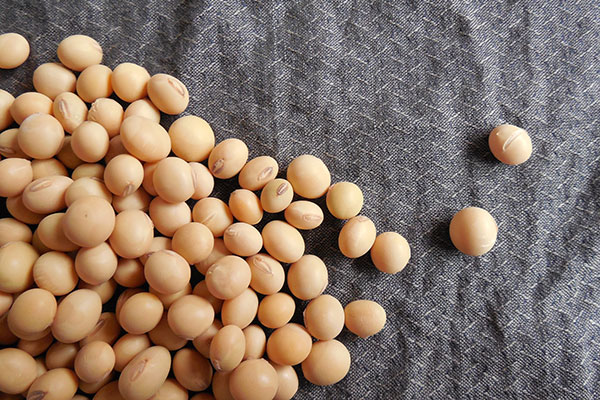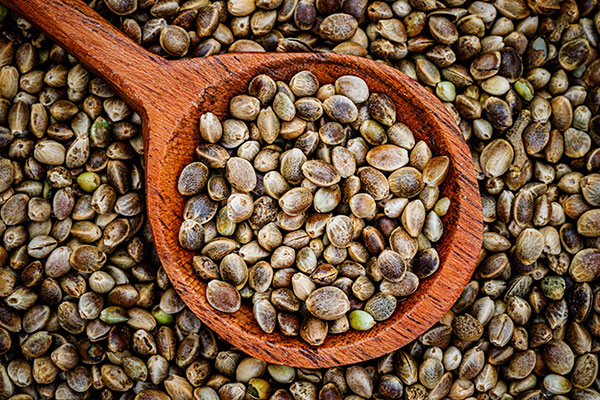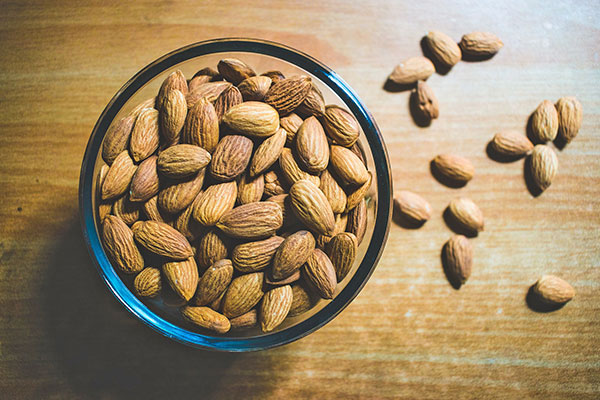Rice milk was the first alternative to cow’s milk that came onto the market in the early 1990s. Since then, more than twenty different plant-based milk substitutes have become available in supermarkets and even drugstores.
Most popular are the varieties prepared from almonds, oats, soy, cashews, rice and coconut.
Yet, as new as this trend may seem at first glance, the history of plant milk is centuries-old. For example, around 1000 AD, texts from North Africa and Spain describe milk-like juices made from tiger nuts. Other records show the use of almond milk and soy milk in China as well as in medieval England. And the Southeast Asian cuisine is renowned worldwide for its delicious curries based on coconut milk.
Milk alternatives can be made from almost all types of grains and seeds. They are used, among other things, in porridge, coffee and tea, for cooking and also for baking.
The original: cow’s milk
Although classic cow’s milk is still the most widely consumed, it is discredited more and more. Questionable animal husbandry at dairy farms and excessive use of antibiotics and growth hormones are increasingly brought to light and justifiably cause bad feelings in many people. In addition, milk as we know it today is a highly processed product and far from its original state due to homogenization and pasteurization.
In contrast, unprocessed, high-quality raw milk is much easier to digest and can be suitable even for people with a milk protein allergy.
In particular, the process of homogenization brings about a strong change in the protein molecules, which can then no longer be properly recognized by the body. These ‘foreign proteins’ can trigger the immune system in the human intestine and, over time, contribute significantly to the development of allergies.
Furthermore, the milk one buys in the supermarket does not come from one cow, but is a mixture of the milk from hundreds of animals. It must be remembered that each cow has its own immune profile and if one bottle of milk contains immune substances and proteins from so many different cows mixed together, this presents a considerable challenge to the human immune system.
When we check what Ayurveda texts say about milk, we should keep in mind that they speak about completely natural, unprocessed milk, as that was the only kind available in ancient days.
Such milk is described as a Rasayana promoting radiance (Ojas). Its qualities are listed as sweet, cooling, and ‘slime-producing’ – which we can translate as ‘moisturizing and softening’. In other words, milk is pacifying the Doshas Vata and Pitta, while increasing Kapha.
Ayurveda recommends consuming milk in small quantities, such as before going to bed, prepared as golden milk.
Milk is considered a complete food in its own right, and combining it with other foods – such as fruits, vegetables, or other animal products – is discouraged, just as combining it with salt.
Goat’s milk
Goat’s milk can be an alternative to cow’s milk, especially for people with mild lactose intolerance, as it contains less casein. Casein is a milk protein that plays an essential role in milk intolerance and often cannot be broken down well.
Goat’s milk contains more short-chain fatty acids, which are more easily absorbed by the intestines and directly processed in the liver. Cow’s milk, on the other hand, contains more long-chain fatty acids, which can lead to an increase in cholesterol.
Also, goat’s milk is richer in vitamins and minerals, such as zinc and selenium.
From an Ayurvedic perspective, the same recommendations apply as for cow’s milk: milk should be consumed fresh, unprocessed and as its own food.
Soy milk
Along with rice milk, soy milk was one of the early milk alternatives on supermarket shelves, but in recent years, it is becoming less popular. Soybeans contain valuable proteins and other important nutrients, but also so-called phytoestrogens (plant hormones), which can influence our hormone metabolism and, under certain circumstances and in high doses, increase the risk of obesity and breast cancer.
If you like soy milk, then use small amounts. When selecting a brand, make sure it does not contain soy protein isolate, as this form of protein is a mineral predator which can inhibit the absorption of calcium, magnesium, copper, iron and zinc, among others.
In addition, genetically modified soy should be avoided and if possible, use milk from domestic organic soy cultivation.
Rice milk
Rice milk is also well-known and can be found in every supermarket. Its consistency is rather liquid and the taste is usually very sweet due to a lot of added sugar.
For people who need to watch their blood sugar levels, it’s better to avoid this milk alternative, as the glycemic index of rice milk is relatively high at 86%.
Rice milk can be a good alternative for people with nut and grain allergies, but it is not one of the classic superfoods.
Hemp milk
Hemp milk is extracted from the small seeds of the hemp plant and contains a variety of essential amino acids, as well as an extremely good ratio of omega-3 to omega-6 fatty acids.
Hemp milk has a pleasant nutty taste and is very suitable for baking and cooking because of its consistency.
Almond milk
Another well-loved milk alternative is almond milk, on account of its pleasant taste and consistency. Almonds in their natural form are known for their abundance of protein, fiber, antioxidants, vitamins, minerals and trace elements.
Almonds are considered strengthening and aphrodisiac in Ayurveda and they provide valuable energy. We have written more about the health benefits of almonds in part 1 of our blog Ayurvedic Rasayanas at Home.
However, while a handful of almonds contains all the above-mentioned substances and is very beneficial to your health, industrially produced almond milk contains hardly any of these. This is because it mainly consists of water and sugar: almonds make up only 2–5% of the ‘almond milk’. If you buy almond milk, it’s best to go for unsweetened varieties – and avoid hidden sugars.
However, there is another alternative: Fresh, home-made almond milk with dried fruits soothes Vata and Pitta Dosha, is easily digestible and nourishing to the heart, muscles and eyes.
Conclusion: the best almond milk is the one you make yourself! It’s very easy, but a little planning is needed, so we have posted the recipe for you here. Please note that, although you can keep it in the refrigerator for two days, we recommend drinking your home-made almond milk the same day.
Practical advice from Ayurveda
Conventional products from the supermarket are deemed Tamasic, which means that they increase heaviness and lethargy and are rather a burden to the body when consumed in larger quantities.
Ayurveda recommends enjoying food and beverages which are as fresh as possible; foods that are industrially-produced and preserved are therefore always considered Tamasic and should comprise the smallest part of our diet.
If you can’t buy raw milk or prepare your own plant milk, be sure to check the ingredient list before buying. Many products contain a large amount of sugar and also thickening agents such as carrageenans, which can cause strain on the digestive tract.
If you have a Vata-type constitution, almond milk, rice milk and oat milk are most suitable.
If you are more of a Pitta type, coconut milk, almond milk and rice milk are ideal for you.
If Kapha Dosha is predominant in your physiology, go easy on milk in general, as milk has the same properties as Kapha (cool, heavy, moist) and thus further nourishes Kapha Dosha.
Your Maharishi Ayurveda Team from Bad Ems
Download the article as a PDF file
© Maharishi Ayurveda Health Centre Bad Ems






Greetings!
thank you for the newsletter, as always I find it not only interesting but so very helpful.
Love the recipe for golden milk, I make it quite often, and have shared with friends and family. Will try the other milk recipe as well.
Rest of letter very informative
Keep up the great job!!!!
Namaste’
Elena\Lella
Sent from my iPad
Dear Ella,
thank you very much for your sweet words, we are all very happy that we can be helpful with our informations
Stay happy and healthy
Karin Pirc